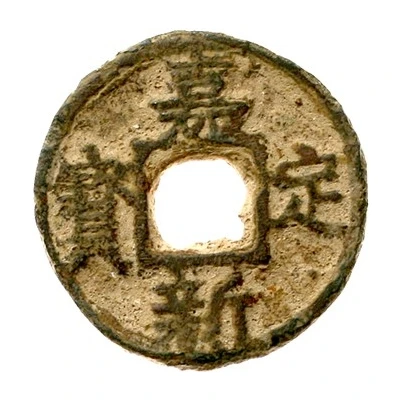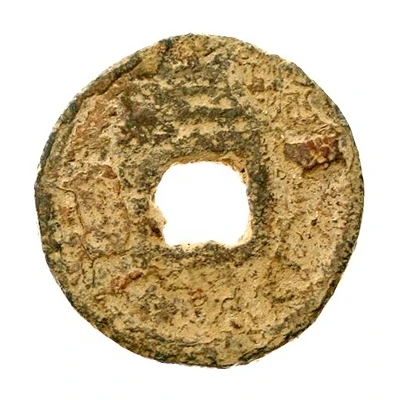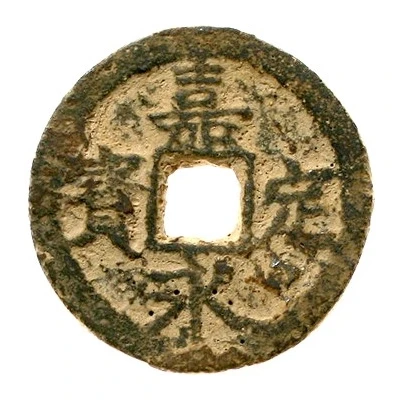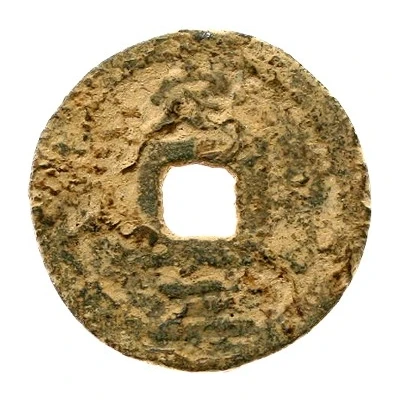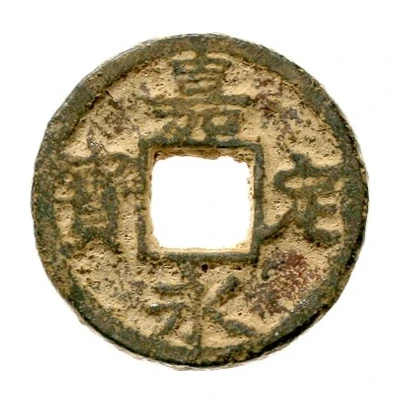
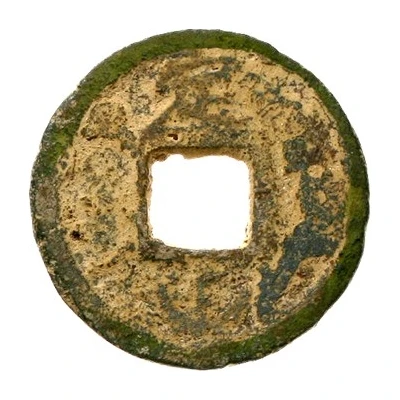

© Teutoburger Münzauktion
3 Cash - Jiading Yongbao; Ding; with crescent and dots; iron ND
| Iron | - | 33 mm |
| Issuer | Empire of China |
|---|---|
| Emperor | Southern Song dynasty › Ningzong (宋寧宗) (1194-1224) |
| Type | Circulating commemorative coin |
| Years | 1208-1224 |
| Value | 3 Cash |
| Currency | Cash (621-1912) |
| Composition | Iron |
| Diameter | 33 mm |
| Shape | Round with a square hole |
| Technique | Cast |
| Orientation | Medal alignment ↑↑ |
| Demonetized | Yes |
| Updated | 2024-10-04 |
| Numista | N#219564 |
|---|---|
| Rarity index | 100% |
Reverse
One Chinese ideogram above and one crescent with two dots below.
Script: Chinese (traditional, regular script)
Lettering: 定
Translation:
Ding
Jiading-fu (city)
Edge
Plain
Comment
During the Jiading era, in addition to the regular Tongbao, Yuanbao, and Zhongbao coins, various other currency names are used:- 安寶 (Anbao; peaceful currency)
- 崇寶 (Chongbao; noble currency)
- 大寶 (Dabao; large currency)
- 封寶 (Fengbao; honoured currency)
- 洪寶 (Hongbao; great currency)
- 隆寶 (Longbao; eminent currency)
- 泉寶 (Quanbao; type 1; wealthy currency)
- 全寶 (Quanbao; type 2; perfect currency)
- 万寶 (Wanbao; uncountable currency)
- 新寶 (Xinbao; new currency)
- 興寶 (Xingbao; prosperous currency)
- 永寶 (Yongbao; everlasting currency)
- 真寶 (Zhenbao; type 1; true currency)
- 珍寶 (Zhenbao; type 2; precious currency)
- 正寶 (Zhengbao; orthodox currency)
- 至寶 (Zhibao; type 1; best currency)
- 之寶 (Zhibao; type 2; the currency)
These all appear to be from mints in Sichuan; however, the exact purpose of these pieces (collectively known as the substitution series) is uncertain.
One possible theory is that, because the Jiading era lasted 24 years and there are exactly 24 coin in this series, a different currency name was used each year.
Interesting fact
One interesting fact about this coin is that it features a unique crescent and dot design, which was a new design element introduced during the Jiading period. This design was used to signify the coin's denomination and to differentiate it from other coins in circulation. The use of iron in the production of this coin was also significant, as it was a departure from the traditional use of copper and silver in Chinese coinage. The decision to use iron was likely influenced by the abundance of iron in China and the need to create a more affordable and accessible currency for the masses.
